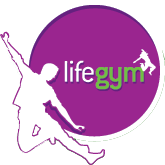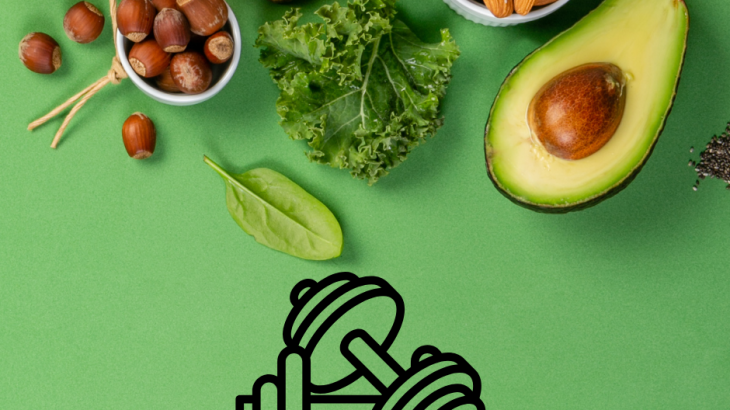 |
|
The doctor who prescribes weights and protein (3 minute read) Dr Gabrielle Lyon has spent years researching longevity and the impact of lifestyle changes in the health of her own patients as they age. Now, in a new book, Forever Strong, she argues that what people should be focusing on for optimal health is not trying to lose weight but getting stronger. This is the doctor who prescribes weights and protein Rebooting one’s health with an emphasis on building muscle, she says, will help people of all ages to boost their metabolism, have far more energy, stay mentally sharper and shift excess body fat. She became intrigued by the rising numbers of people struggling to lose weight and patients in their sixties and seventies being diagnosed with dementia, despite them following the latest science-backed advice on food intake and activity. Over time she concluded that the connection between these groups and others with ill health was not only that they were ageing or had too much body fat, but that their muscle size and muscle health had plummeted to levels far lower than those of younger people. What was missing from their lifestyles, she says,was resistance exercise and enough protein in their diet — the combination needed to enhance muscle health. There will be almost immediate improvements in blood glucose control, and within two weeks markers for a range of diseases will reduce. In a large trial involving nearly half a million adults published in the British Journal of Sports Medicine last year, a team of US scientists showed that adding more muscle-strengthening workouts not only enhanced fitness but reduced the risk of injuries and improved longevity. Lyon describes one recent female patient who had struggled with her health and weight for decades, but shed 4 st within nine months of shifting her focus from calorie counting to consuming more dietary protein and lifting weights. “We worked on her protein consumption and her workouts to enhance her muscle health,” Lyon says. “Not only did she lose a lot of weight, but her joint pain disappeared, her biomarkers for autoimmune disease were dramatically reduced, and her levels of blood fats improved.” It doesn’t end there. From our fifties onwards, she says, good muscle health also helps to maintain bone density and prevent osteoporosis. In our seventies it protects against falls. Best of all, perhaps,it has a powerful anti-ageing effect on the way muscle tissue works above and beyond aesthetics. Dr Gabrielle Lyon’s 8 rules to reboot your health 1. You are probably not eating enough protein The minimum I’d ever recommend is 100g of protein daily for men and women who are also doing some resistance training. Ideally take 1g of protein per pound of body weight per day. To give you an idea of what this means, a skinless chicken breast contains 54g, a 145g can of tuna 40g, two eggs 14g, a 250g steak 62g, and beans, peas and lentils anything from 5-8g per 100g. 2. It’s not just how much, but the quality of protein that matters Animal-derived protein is, by definition, better quality than plant-based protein in that it contains the highest quantities of essential amino acids. That doesn’t mean you won’t get enough if you eat a vegetarian, vegan or plant-based diet, just that it requires more effort and planning, and you’d have to consume more protein in total to get what you need.You will almost certainly have to supplement with some extra protein sources,such as a vegan protein powder, if you don’t eat at least dairy and eggs.
3. Prioritise protein for breakfast We come out of an overnight fast after sleeping in a catabolic state, meaning our body is preparing to break down nutrients for energy because our reserves are low. Our skeletal muscle is primed for stimulation first thing in the morning, and by front loading with 30-50g of good-quality dietary protein in your first meal of the day, you will set off this important process 4. Midlifers need protein after a workout Following a resistance workout with a protein shake or snack actually matters less for people in their twenties and thirties than it does for those aged 50-plus. Our ability to use amino acids is reduced from midlife onwards, but taking a 20g dose of protein — the amount of a couple of handfuls of nuts or a shake with 20g of whey protein, for example — when bloodflow is increased after the intense muscle contractions of weight training enhances the uptake. 5. Lifting weights three times a week is a non-negotiable after 40 Increasing your intake of protein will bring benefits to your health, but these are multiplied several fold when you add resistance training, which means performing high-tension muscle contractions against any external load.
6. Gradually add more weight Progression with strength and resistance training is critical. We have to keep getting better with it or we simply won’t shift that metabolic needle. 7. Eat a protein-rich meal four hours before bed There’s a school of thought — and some research to back it up — that eating 30-40g of quality protein, such as that in a bowl of Greek yoghurt, before bed can help with overnight muscle protein synthesis as well as increasing metabolic rate. I tend to recommend eating a meal containing 30-50g protein — for example a chicken breast — 3-4 hours before you go to bed. 8. Consider taking supplements The foundation of healthy muscle is a healthy,protein-rich diet and resistance exercise. However, there are some supplements that can support your quest for better muscle health. Since there are vitamin D receptors in our muscles, everyone should take a supplement of this important vitamin, and there is emerging research that omega 3 fatty acids and fish oil supplements impact the muscle health of women more than men. I hope you find this information useful from the doctor who prescribes weights and protein Check out our protein range here |





